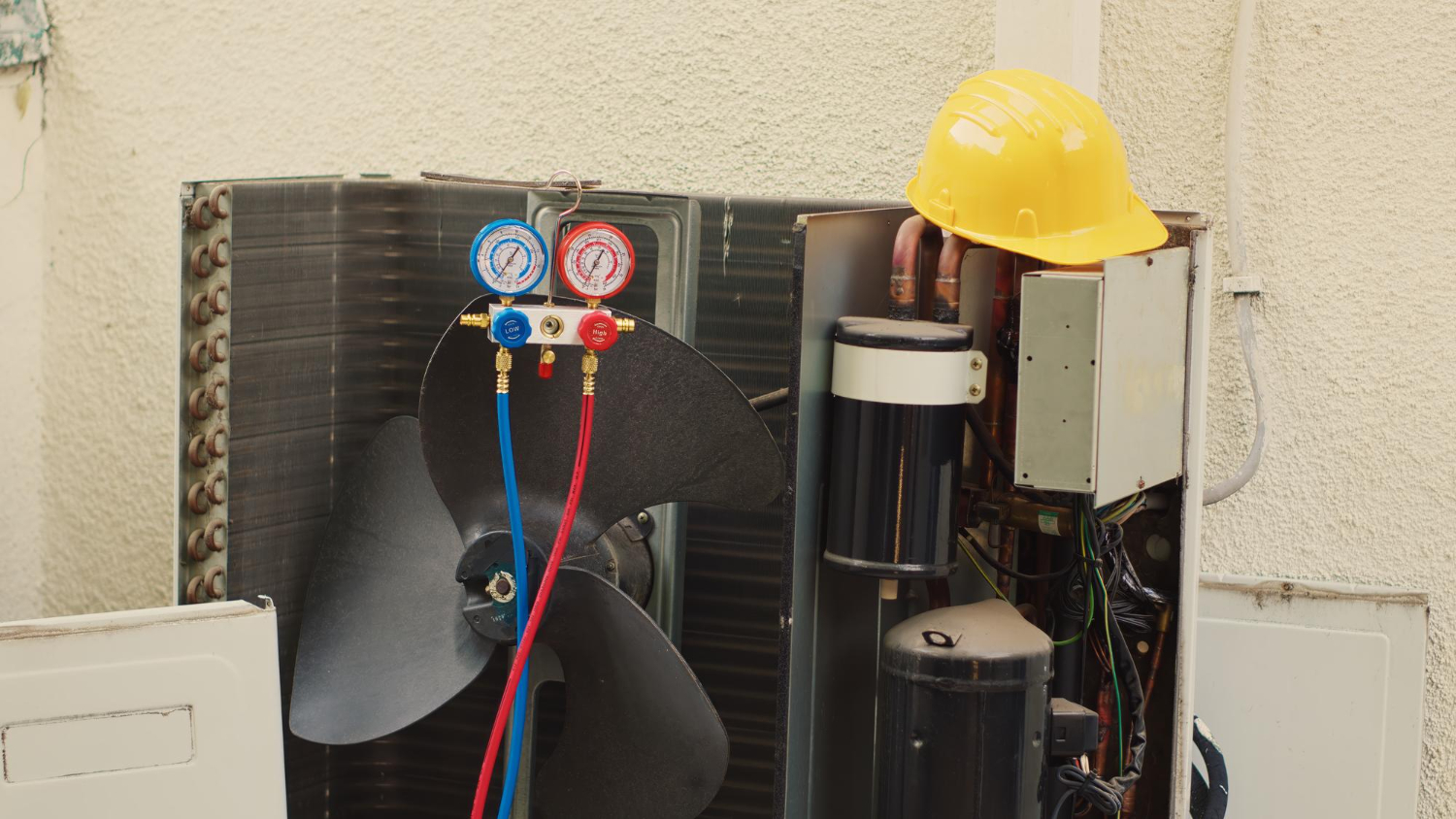Choosing the right heat pump for your home is a critical decision that impacts your comfort and energy efficiency. A heat pump is an integral part of your heating and cooling system, providing a cost-effective and sustainable way to maintain a comfortable indoor environment. Whether you are upgrading an old system or installing a new one, understanding your home’s specific needs is essential for making an informed choice.
Understanding Your Home’s Heating and Cooling Needs
Understanding your home’s heating and cooling needs is essential before installing a heat pump. Every home is different, and the size, layout, insulation quality, and climate zone play a role in determining the best type of heat pump for your home.
Our professionals begin by conducting a comprehensive assessment of your home. They measure the square footage of different rooms, examine insulation levels, and review the current heating and cooling systems. This information helps determine the heat pump’s capacity required to efficiently heat and cool your home.
In addition to physical factors, our professionals also take into account your personal preferences and lifestyle. For example, if certain rooms are used more frequently, they might suggest zoning options that allow for targeted heating and cooling. By understanding both the structural needs and your particular requirements, our technicians can recommend the most effective heat pump solutions tailored to your home.
Different Types of Heat Pumps Explained
Different types of heat pumps serve various heating and cooling needs. It’s important to understand the primary types to determine which is best suited for your home.
1. Air-Source Heat Pumps:
These are the most common types, using the outside air to transfer heat inside during winter and remove heat from inside during summer. They are generally easier to install and are suitable for moderate climates.
2. Ground-Source Heat Pumps (Geothermal):
These pumps use the stable temperatures underground as a source for heat transfer. They are more efficient but usually have higher installation costs due to the need for buried underground coils.
3. Ductless Mini-Split Heat Pumps:
Ideal for homes without existing ductwork, these units have both indoor and outdoor components linked by refrigerant lines. They provide flexibility as they can be installed in specific rooms or areas.
4. Hybrid Heat Pumps:
These systems combine a heat pump with a conventional furnace to optimize energy use. They switch between electricity and gas depending on efficiency needs and are ideal for areas with extreme seasonal temperature variations.
Key Features to Consider When Choosing a Heat Pump
When choosing a heat pump, several key features can affect both performance and efficiency. Understanding these features helps you make an informed decision that meets your specific heating and cooling needs.
1. Efficiency Ratings:
Look for the Seasonal Energy Efficiency Ratio (SEER) and Heating Seasonal Performance Factor (HSPF). Higher ratings indicate better efficiency and lower operating costs. Our professionals can help you interpret these ratings to find the best match for your home.
2. Variable-Speed Compressors:
Heat pumps with variable-speed compressors can adjust their operation to match the heating or cooling demand. This results in more consistent temperatures and increased energy efficiency.
3. Stage Heating and Cooling:
Single-stage systems operate at full capacity, while two-stage or variable-stage systems can run at lower capacities when full power is not needed. These systems provide more precise temperature control and greater comfort.
4. Noise Levels:
Consider the noise levels of different models. Heat pumps with lower decibel (dB) ratings are quieter, making them ideal for homes where noise is a concern.
5. Smart Thermostats:
Some heat pumps are compatible with smart thermostats, allowing for remote control and energy management. This feature enhances convenience and can lead to energy savings.
6. Defrost Features:
In colder climates, a defrost cycle prevents the outdoor unit from freezing. Heat pumps with efficient defrost features ensure reliable performance during the winter months.
Why Professional Installation is Essential
Professional installation is crucial for the optimal performance and safety of your heat pump system. Expert installation ensures that the system operates efficiently and minimizes the risk of future issues.
1. Proper Sizing:
Incorrectly sized heat pumps can lead to inefficiencies and increased wear. Our professionals conduct thorough assessments to recommend the appropriately sized unit for your home, ensuring efficient operation.
2. Expert Placement:
The location of both indoor and outdoor units affects heat pump performance. Our technicians strategically place units to maximize airflow and efficiency while minimizing noise and exposure to elements.
3. Correct Installation:
Improper installation can lead to refrigerant leaks, electrical issues, and reduced system lifespan. Our experts follow industry standards to install components correctly, ensuring the system functions safely and reliably.
4. Adherence to Safety Codes:
Our professionals comply with all local, state, and federal safety codes. This adherence guarantees that the installation is safe and up to regulatory standards, providing peace of mind.
5. Optimized Performance:
Professional installation includes fine-tuning and calibrating the system for optimal performance. This results in more consistent temperatures, lower energy bills, and improved comfort.
6. Warranty Protection:
Manufacturer warranties often require professional installation. Hiring our experts ensures that you maintain warranty protection, safeguarding your investment.
Conclusion
Selecting and installing a heat pump involves careful consideration of your home’s needs, the types of heat pumps available, and the key features that enhance performance and efficiency. Each step, from understanding your home’s requirements to professional installation, is critical in ensuring optimal operation and longevity for your heating system.
By choosing a heat pump with the right features, such as high efficiency ratings and smart thermostats, you ensure comfort and cost savings. More importantly, professional installation by our skilled technicians ensures that the system functions correctly and safely, adhering to all necessary codes and standards. This holistic approach guarantees that your investment provides long-term benefits.
Ensure that your home’s heating and cooling system is both efficient and reliable. Contact Temperature Control Services Inc. today to schedule your consultation and get started on your heat pump installation in Wake Forest, NC.





